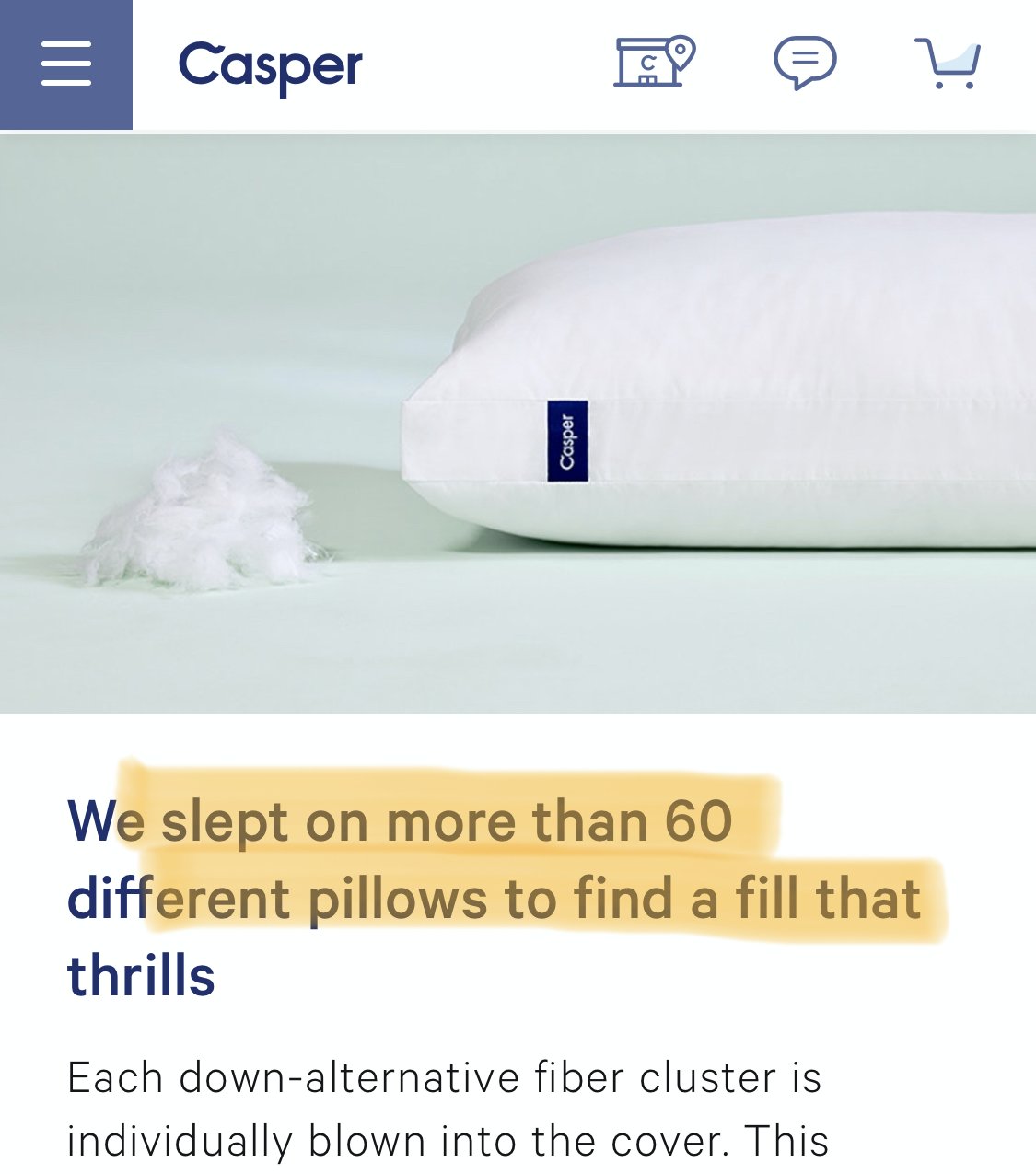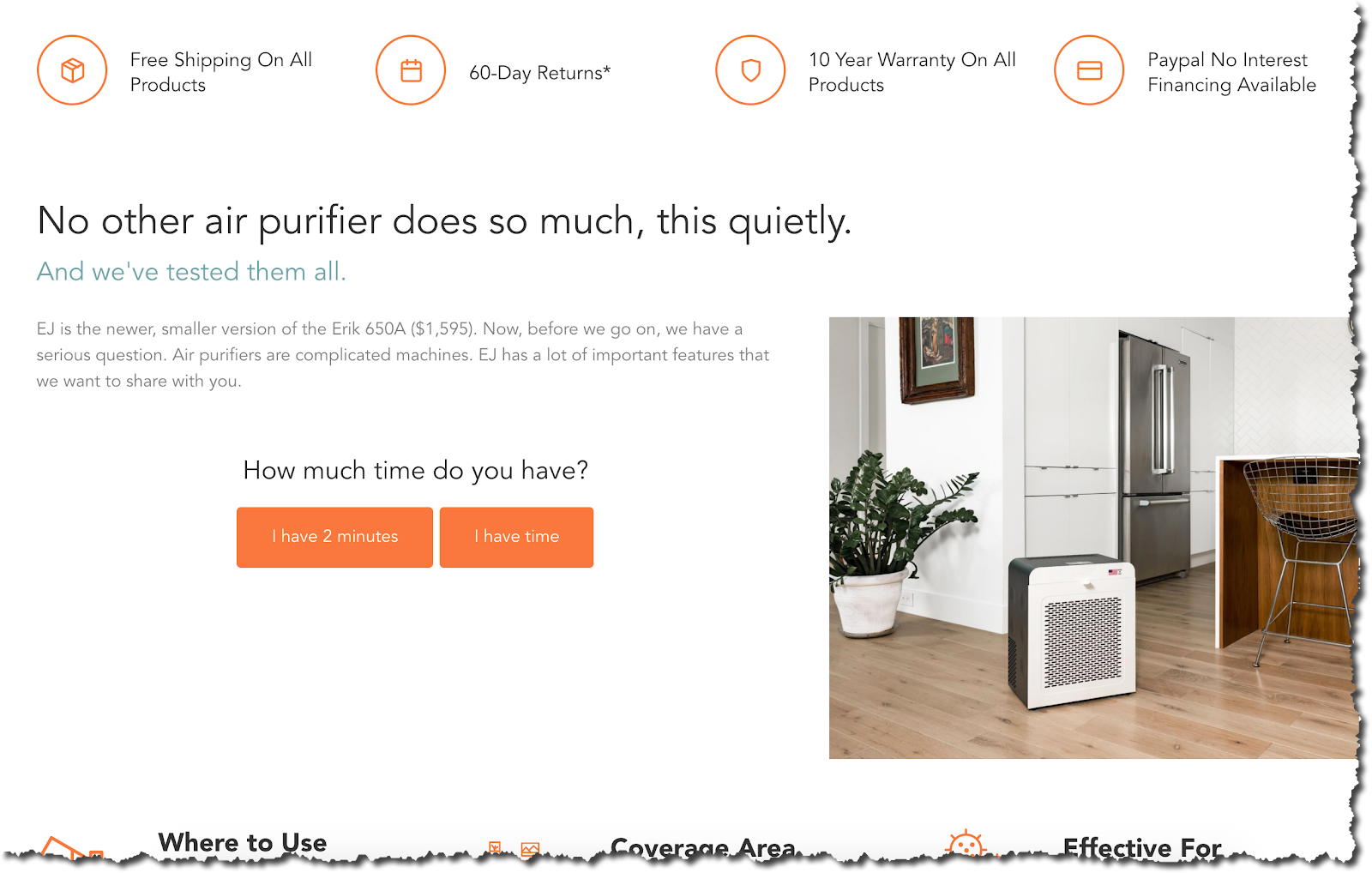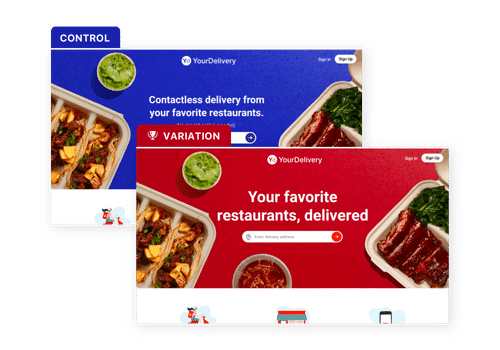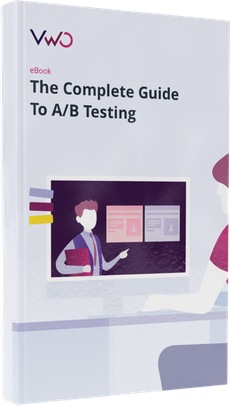What Makes Copywriting An Underestimated Conversion Influencer
VWO’s Masters of Conversion webinar series recently featured Rishi Rawat, Founder, Frictionless Commerce, and Vipul Bansal from the VWO Marketing team.
In this exclusive webinar, Rishi shares his nuggets of wisdom on copywriting and how to harness its limitless potential in boosting conversions.
Rishi talks about how he discovered his passion and knack for copywriting and what his professional journey of over a decade has looked like. He emphasizes leveraging copywriting as a conversion catalyst and shares some actionable insights and tips for writing copy that converts.
Download Free: A/B Testing Guide
Following are the key takeaways from the session:
Rishi’s introduction to copywriting
Rishi was initially never a copywriter. In fact, he stumbled upon copywriting while working in CRO. Over the years, he discovered that while running A/B tests, copy was seldom the focus. However, his own tests based on ideas and hypotheses around copy always had the best statistical outcomes. And that’s how he came to realize the importance of copy from a conversion perspective and began to focus on it.
The underestimated power of copy
To illustrate the power of copy, Rishi shared an example from one of his clients, Walkin Wheels, where his team used a rather unconventional approach to redo their category page.
Originally, the category page featured their star products, highlighted their features, and had bold CTAs to direct visitors to the product pages. Rishi’s team decided to run an experiment to see how the visitors would respond if the page highlighted the story of the brand instead of marketing any products at all.
They removed the products from the page, added a ‘See Products & Details’ CTA at the bottom, included videos, a picture of the founder, and a team picture. The new page focused on what the company is all about and why they exist. By making the brand’s story the hero of the page, they noticed an uplift of 28% in their conversion rate.
This success story is evidence that copy can make a remarkable difference in conversion rates. However, in order for copy to do so effectively, it needs to be optimized and well thought-through. And the first step towards writing copy that converts is understanding buyers’ psyche.
Rishi shares the 12-point checklist that he has been using for years to write impactful and conversion-oriented copy.
Buyers are skeptical of ‘too good to be true’
Buyers are extremely wary of any unrealistically great offer or even surprisingly premium features of a product that might seem too good to be true. Even the fact that you are way better than your competitor might potentially be a disadvantage if you don’t address it, as buyers might doubt that an offering as good as yours could be a hoax.
Therefore, whether it is in terms of product quality, features, or even your terms and policies, anything that could come across as unrealistically good should be appropriately addressed in your website copy.
Buyers find expertise sexy
Buyers are drawn to experts’ opinions, and as a brand, if you can demonstrate your expertise, it would add to your credibility and get buyers to trust your word. However, merely stating that you are an expert isn’t enough. Your copy must reflect your competence and convince the visitors that you are an industry leader.
Take this example from Casper. The headline reads, ‘We slept on more than 60 different pillows to find a fill that thrills’.

They are clearly demonstrating their expertise. And when you are on this page as a potential buyer, you know that this pillow is the best because they’ve tested all the other alternatives out there.
Shoppers are influenced by implied messages
While you want your copy to be crystal clear, you also need to bear in mind that explicitly stating everything in detail might end up doing more harm than good. It’s always advisable to treat your prospects as smart individuals capable of filling in the blanks, and if you let them draw their own conclusions, you have a better shot at getting them to convert.
Here’s an example of a headline that reads ‘There are over 120 energy drinks on the market. We’ve tried them all’. Compare it to an alternative headline that says, “There are over 120 energy drinks on the market, ours is the best’.
While the first headline is subtle, the second one is the stated option where the marketer is spoonfeeding readers the idea that their brand is the best. According to Rishi, this is very ineffective. As much as possible, you want to go for the implied version of your copy and let customers fill in the blanks.
We root for people who beat the odds
As humans, we are fundamentally wired to root for those who beat the odds, and as a brand, you want to make sure your story reflects how you overcame certain challenges to get where you have. Every business has some or the other instance where they have beaten the odds, and this sometimes gets overshadowed by their achievements.
Rishi suggests that you recollect such instances in your journey and incorporate them into your copy. Once done, your copy will speak volumes to your visitors about who you are as a brand and what you stand for. This works wonders in helping you form a deeper connection with them.
Readers and buyers love surprising details
Rishi believes that there are always tons of surprising and exciting details about any product that can get visitors interested in it and willing to engage with the brand. Discovering what those are is the first step of the exercise. Introspecting, talking to your team, and interviewing your customers can enlighten you with interesting details about your products that even you might find surprising.
Editor’s tip: You can also run On-Page Surveys to collect first-hand information from your visitors on their preferences.

Once you have created a list of those, make sure your copy reflects them so you can utilize every opportunity to surprise and delight your audience and get them interested in your offerings.
We are visual animals
Since visuals are far more successful in capturing human attention and invoking an emotion, Rishi strongly encourages supplementing text with visuals wherever possible or using copy to evoke powerful visuals that elicit the desired reaction from your audience.
Editor’s tip: See how visitors are engaging with the images and copy on your page with Heatmaps. Start your free trial today!
Buyers need the motivation to break a habit
This point is a reminder that no matter what product or service you are offering, there will always be people ready to turn it down. It could be because they are in denial of the problem, or have already figured out a workaround for the same. In both these cases, you need to motivate them enough to go out of their way and consider your offering.
Editor’s tip: Use Funnels to see where people are dropping off and find out why. Take an all-inclusive and guided 30-day free trial with VWO Insights.
Rishi, therefore, highlights that in most cases, your competitors are not just companies who sell the same product or service. You are also competing against the lack of motivation among your prospects to consider a new way of performing a certain task or recognizing a new problem that might require a solution. And addressing this adequately in your copy will work to your advantage by highlighting the real need for your product and motivating your audience.
The example Rishi shares is that of a company selling hybrid exercise bikes. Their competition is not other companies that are also selling adult hybrid exercise bikes, but people who use workarounds because they have figured out other ways of being healthy. They might run on a treadmill, go for a jog outside, or do other forms of exercise.
However, if they use a treadmill or go out for runs, one of the downsides is that they might be hurting their joints as research shows that running on the road or a treadmill puts a lot of pressure on joints, whereas bikes ease that pressure.
So, Rishi’s hypothesis is that instead of talking about competitor bikes or how amazing your own bike is on the product page, why not talk about the fact that it puts a lot less pressure on your joints if you ride a bike? That’s a much more persuasive message because you are trying to compete against you running on a treadmill and not other brands.
Download Free: A/B Testing Guide
Shoppers love personalized experiences
Rishi believes that personalized experiences can go a long way in uplifting conversions. Not everyone in your target audience might have the same preferences; therefore, try to personalize your product page or sales pitch copy to accommodate for different segments in your audience group and engage better.
Rishi shared an example of how his team redid the product page for an air purifier brand. They acknowledged that the page receives two kinds of visitors. Some very methodical people appreciate technical details about the product, and then some merely want a quick summary. And so they decided to create two versions of their sales pitch copy for the same page.
They redid the product page and asked the visitors, ‘How much time do you have?’ If they clicked on ‘I have two minutes’, they showed them the shortened version of the sales pitch. And if they selected, ‘I have time’, they presented the more detailed version of their sales pitch. This test improved sales of this product by 30%, and it happened solely by personalizing experiences for the consumer.

Image Source: Oransi
Buyers love the idea of discovery
People enjoy discovering something rare and exclusive that most others don’t have access to. It makes them feel good about themselves and instills a sense of achievement in them. Therefore, if your copy can position your product/service as something rare and make your audience feel as if they’ve stumbled upon something worthy, they are most likely to stick around and explore it.
We buy from people we like
Rishi emphasizes the fact that since the buyer and seller are socially distant when it comes to eCommerce, it can be tough to create a relationship deeper than a transactional one. Therefore, he believes that website copy must be leveraged impactfully to communicate your brand’s authentic personality and inject a sense of likeability towards the brand so that the customer enjoys interacting with you.
Editor’s tip: A/B test your site copy to figure out what makes your audience click.

Buyers are curious
While leveraged extensively in advertising, buyer curiosity is something copywriters can benefit from even for creating delightful digital experiences. Rishi highlights that humans are naturally wired to be curious, and as a copywriter, one must ensure that the copy they write invokes their visitors’ natural sense of curiosity that entices them to explore your offerings.
Rishi’s advice on:
Telling a story with constraints on the number of characters
Rishi believes that limitations around the length of the copy aren’t something that should hold copywriters back. In fact, he encourages letting the buyers decide the type and length of stories they want to read and urges copywriters to figure out a clever way of asking them if they want to skip to the important stuff or have time for a detailed pitch. And irrespective of the choice of the buyer, you must customize your copy for both scenarios. He adds that you mustn’t have one sales pitch and force-feed it to every buyer because every buyer is different.
How to keep quirky content from being misinterpreted by the audience
The cornerstone of giving your brand a personality is letting your authentic and human self shine and reflecting it in your copy. Rishi emphasizes that if your brand is a quirky one, go ahead and ensure your copy reflects that. However, if that is not the case, do not force quirkiness in your copy (even if it improves conversion rates), it’s fake.
The bottom line is that buyers’ purchase decisions are more often than not driven by emotion and are based on likeability. They are drawn to brands that are not afraid of showcasing their authentic personality to their customers. As a brand, the closer you are to being your authentic self, the higher your chances of striking a chord with your audience are higher.
Copywriting for a B2B business: Does the same checklist hold true?
Rishi believes that as long as you are selling to humans, whether it’s a committee of humans or an individual, the same copywriting principles apply. While certain aspects would inadvertently require modification for a B2B environment, the fundamentals of the checklist remain the same. You are still addressing a human in a different context, and therefore, it majorly boils down to fitting the checklist pointers in context for your brand and figuring out what works best for you.
Crafting conversion-centric copy within SEO constraints
Rishi thinks that while writing copy, SEO deserves paramount importance. He also believes that creativity blossoms within limitations and these constraints are what bring out the best in a copywriter. He goes on to admit that some of his best work has been produced within one constraint or the other.
VWO and copywriting
We integrated Open AI’s GPT-3.5 Turbo API with our Visual Editor so that every time you decide to run a test or deploy a change, you can generate copy recommendations in a language of your choice. This means you cut down on time spent brainstorming on variations and alternatives by having a library of AI-generated ideas available at your disposal.
Whether you are looking to optimize headlines, CTA text, product descriptions, or any other text on your site, you can quickly generate alternatives and either directly deploy them or test them against your original copy, both without any developer help. Either way, by automating this aspect of experimentation, you make your CRO program more efficient and agile. You can start a free trial straight away to check this feature for yourself or request a demo from our experts.


















